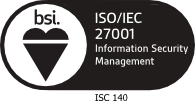Parlaeus is an integral online solution for political and administrative decision-making. In other words, we support the entire process, starting with an idea and ending with the e-depot. Below, we will explain this in detail.
Step 1

Making Plans
In this first phase, policy plans are made. Here, Parlaeus provides scope for cooperation. Both within and outside the organisation, advice can be obtained and this can easily be added to the dossier. After discussing and approving, the proposals can be submitted in MUT and DT for further action.
Accompanying Parlaeus tool:
Step 2

Setting the Board agenda
Notes and proposals that are ready to be sent to the Board can easily be placed on the upcoming agenda. This can be done with both separate documents as well as with complete dossiers.
Accompanying Parlaeus tool:
Step 3

Board meeting
The dossiers that have been prepared by the civil service are offered to the Board for further action. As dossiers have a juridical status from that moment on, decisions from the Board with regard to these dossiers are separately added to the dossier.
Accompanying Parlaeus tool:
Step 4

Publication and archiving Board meeting
After being dealt with in the Board meetings, the dossiers are sent to their next destination. Some dossiers are sent to the Council, others are already finalised. Decisions with regard to the destination of dossiers are made public and in Parlaeus, the dossiers are sustainably archived.
Accompanying Parlaeus tool:
Step 5

Triangular meetings
Thanks to Parlaeus, it is technically possible to assign priorities to the dossiers earlier in the decision-making process. With that, the triangular meeting agenda can be relieved.
Accompanying Parlaeus tool:
Step 6

Setting the municipal Council’s agenda
Parlaeus makes composing the Council’s agenda a lot easier, as Parlaeus facilitates room for the agenda commission to have discussions. Besides that, Parlaeus offers the possibility to collect topics and dossiers early in the process for the long-term agenda.
Accompanying Parlaeus tool:
Step 7

Political group meeting
For political groups too, Parlaeus offers a private discussion environment that perfectly fits the decision-making process. This private environment can be used to discuss dossiers and the coming agenda within the political group. Meeting outside the municipality border, for example a regional meeting with the entire party, is possible as well.
Accompanying Parlaeus tool:
Step 8

Council meeting
Parlaeus supports the Council meeting in several structures; not only plenary or in the scope of the commission, but also during political evenings, etc.
Besides that, Parlaeus offers extended possibilities to widely share and follow the results and outcomes of meetings.
Accompanying Parlaeus tool:
Step 9

Publication
The publication of Council information is crucial for the connection with inhabitants. Both in a written way as well as in multimedia, Parlaeus offers a great deal of solutions.
New applications such as Apps for citizens and special citizen portals are being developed.
Accompanying Parlaeus tool:
Step 10

Archiving
All enrichment formed after creating the dossiers, will be made part of the dossiers afterwards. This applies to reports (both written as well as multimedia reports), votes, motions, commitments, etc. To guarantee maximum accessibility, we save data conform the open data standards, drawn up by the Open State foundation (based on the guidelines of Archief2020). It is possible to connect to a municipal archiving solution, but if desired, Parlaeus can offer its own, separate e-depot solution.
Accompanying Parlaeus tool:
Step 11

Citizens
Giving citizens access to Council information is only the beginning. A lot of Council information is currently offered on the basis of an event. Right now, Parlaeus is working on other ways to pro-actively inform citizens on political and administrative decision-making and to involve citizens in this process.
Accompanying Parlaeus tool:
Is this what your organisation
needs?
Freely request a demonstration.





